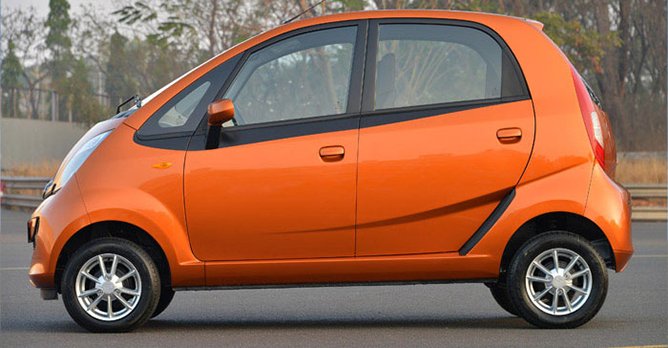Following in the footsteps of Tesla and countless Chinese EV start-ups, India's Tata Motors enters the fray
14 Oct 2021|1,199 views
As the EV-revolution continues to sweep the world - spearheaded by the pioneering start-ups from Silicon Valley and all across China, and with legacy carmakers from Japan and Germany trailing ever so closely behind - India is ramping up its fight.
Tata Motors announced on 13 October 2021 that it will be spending USD$2 billion on electric vehicle production over the next five years, as per reporting by Reuters. In the process, a separate subsidiary will be formed under the group to take charge of the new electric models. Tata Motors already sells two EV models, and plans to launch at least 10 more by 2025.
Tata Motors is India's third largest automaker, and gained international prominence when it announced the Tata Nano back in 2008 - a compact, budget city car with a starting price of only USD$2,500. Conceptualised as a more spacious, more practical alternative to the swathe of motorcycles in India, the project ultimately failed to reach certifiable success due to irreconciliable issues including safety and affordability.
Tata Motors is perhaps also more internationally recognised as the owner of British luxury marque, Jaguar Land Rover.
With its announcement, the carmaker appears to have grand visions of success: Its head of passenger vehicles declared that the company is aiming to "lead the EV charge in the market". Still, an investment sum of $2 billion - impressive on its own - pales in comparison when compared against the amounts shelled out by other more established international players. Toyota, for example, pledged USD$13.5 billion to investments in battery tech just last month.
Tata's announcement nonetheless comes as a jolt of good news for one of the world's largest automotive markets. India logged the fifth highest number of new car registrations in 2020, with only China, the U.S., the entirety of Europe, and Japan placing ahead.
As the EV-revolution continues to sweep the world - spearheaded by the pioneering start-ups from Silicon Valley and all across China, and with legacy carmakers from Japan and Germany trailing ever so closely behind - India is ramping up its fight.
Tata Motors announced on 13 October 2021 that it will be spending USD$2 billion on electric vehicle production over the next five years, as per reporting by Reuters. In the process, a separate subsidiary will be formed under the group to take charge of the new electric models. Tata Motors already sells two EV models, and plans to launch at least 10 more by 2025.
Tata Motors is India's third largest automaker, and gained international prominence when it announced the Tata Nano back in 2008 - a compact, budget city car with a starting price of only USD$2,500. Conceptualised as a more spacious, more practical alternative to the swathe of motorcycles in India, the project ultimately failed to reach certifiable success due to irreconciliable issues including safety and affordability.
Tata Motors is perhaps also more internationally recognised as the owner of British luxury marque, Jaguar Land Rover.
With its announcement, the carmaker appears to have grand visions of success: Its head of passenger vehicles declared that the company is aiming to "lead the EV charge in the market". Still, an investment sum of $2 billion - impressive on its own - pales in comparison when compared against the amounts shelled out by other more established international players. Toyota, for example, pledged USD$13.5 billion to investments in battery tech just last month.
Tata's announcement nonetheless comes as a jolt of good news for one of the world's largest automotive markets. India logged the fifth highest number of new car registrations in 2020, with only China, the U.S., the entirety of Europe, and Japan placing ahead.
Latest COE Prices
June 2025 | 2nd BIDDING
NEXT TENDER: 09 Jul 2025
CAT A$98,124
CAT B$116,670
CAT C$65,000
CAT E$116,889
View Full Results Thank You For Your Subscription.



















